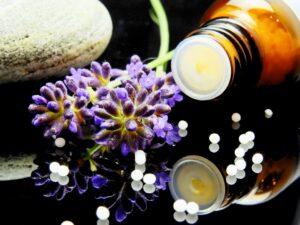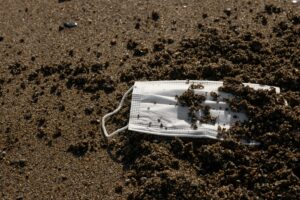Read time 6 minutes
This blog is another opportunity to feel grateful. Thank you, dear Universe, you continue to bless me with recovery and health.
The marks felt like mementos of imperfection on my legs that I didn’t deserve. Likewise, my rare neurological disease, even days with eczema can feel quite unpredictable.

At first, I thought the itching and rashes were due to an allergic reaction to my medicines and the hot weather. The doctor put me on a course of antibiotics and an anti-fungal cream but even after 10 days nothing changed.
This blog post has my experience with Eczema. This post can be helpful if you want to learn some practical tips to overcome and prevent the condition.
Was it associated with or a symptom of my rare neurological problem, Isaacs’ Syndrome? or did it happen due to an allergic reaction to my Allopathic and Ayurvedic medicines? Also, let’s discuss the symptoms, causes, and practical treatment options for eczema.
A little About Getting Diagnosed With A Rare Diagnosis and Eczema
In 2016, I was diagnosed with a rare disease called Isaacs’ Syndrome. Isaacs’ is a neuromuscular health condition that stems from muscle hyperactivity. In the process, I also discovered that I had Lyme disease. Lyme is a bacterial illness that gets transmitted through ticks.
Glaucoma also accompanied me. Glaucoma is an eye-related disease that damages the optic nerves. And Membranous Glomerulonephritis is a progressive kidney disease. I faced tremendous issues with my gut, stomach acid, and digestive enzymes. During my journey, I also developed Irritable Bowel Syndrome (IBS), Diabetes, Frozen Shoulder, and Blood Pressure.
These diagnoses altered the course of my life in many ways. For many reasons, it was scary when the doctors called me ‘rare’ and new choric ailments kept adding to my kitty.
Chronic diseases can persist for long periods showing their impact beyond physical symptoms. Living with a set of them was challenging as I navigated through uncertainties and limitations.
It was during those uncertain times that I noticed a scratching fit.
These long scratches resembled marks that I had developed from falling off while cycling during school days.
Initially, I underestimated the severity of the symptoms, delaying seeking medical advice. But with time I realized that eczema isn’t just a minor inconvenience.
It requires careful management, and timely intervention can help prevent severe flare-ups. Proper awareness and taking proactive steps can improve the quality of life.
The marks on my legs became deeper and more evident and I visited a Homeopathy doctor.
After investigation and doctor discussions, I discovered the following important facts:
-
My medical history is possibly the cause of my overactive immune system.
-
My rare and chronic ailments led to increased inflammation and hypersensitivity. It is the added cause of eczema.
-
I might have inherited mutated genes from my father’s side, which increased the chance of developing eczema.
-
Environmental factors can also play a significant role in triggering eczema. Things like pollen, dust, and certain weather conditions can contribute to flare-ups.
-
Typically, there isn’t any recognized cause, trigger, or cure for eczema.
-
I was recommended not to try at-home remedies for treating eczema.
-
There isn’t any special diet for eczema. Marginal benefits can be felt with anti-inflammatory foods.
-
Eczema is not contagious and is not an infectious disease.
Somehow, labeling the problem was comforting as it gave a sense of hope for finding the right treatment.
A few days of taking antibiotics did nothing except make my digestion even weaker.
Life with Eczema

A constant fear lingered in my mind.
Comparatively dealing with my arms and legs was still ok but the itch around my eyes was quite dry, red, itchy, and all together another story. It went beyond the itch that an average person may experience. It was painful, caused burning, and did impact my sleep pattern. I became close friends with Boroline and Vaseline.
To say the least, it went beyond my imagination.
In the process, I realized how one looks on the outside is not that significant compared to who you are on the inside.
Time for a reality check… But to almost all of us, our physical appearance does matter.
The impact of eczema goes beyond itching and affects one at a much deeper level as we all wish to look normal.
I was more scared listening to my uncle’s experience who often got eczema flareups in his legs. They were so bad that he had cuts and hardly walked without using cotton and bandages. How difficult it must be to experience such flare-ups.
There is no known cure for eczema in allopathic medicine, but homeopathic medicines can be of help.
My current goal is to create a flare-up management plan so that I can stop my condition from getting worse.
The Role of Homeopathic Medicines in Treating My Eczema
Today, Homeopathic treatments are explored by many patients seeking alternative treatment for skin conditions.

Homeopathic medicines are known for their:
-
Holistic approach
-
Not Symptomatic Touch
-
No reports stating problems when consuming other genres of medicines
-
Homeopathic medicines are generally considered safe
-
Its ability to address the root cause
The medicines considered my overall health and lifestyle factors and were tailored to my needs. I was asked to give enough gap between my ayurvedic and homeopathic medicines.
Immune System Overactivity

After discussions, I discovered how an overactive immune response plays a significant role in the development of eczema.
-
My weak Immune system due to Isaacs’ Syndrome was a gateway for such diseases. It even overreacted to substances considered harmless and certain foods had exaggerated responses leading to inflammation.
-
I was asked to keep my skin clean to keep it more effective at keeping out irritants, allergens, and bacteria.
-
Genetics plays a significant role in eczema. Filaggrin, a protein that helps maintain the skin barrier becomes weak allowing allergies to enter and trigger an immune response.
-
Environmental triggers such as weather change can also exacerbate eczema flare-ups.
In my experience, understanding the role of an overactive immune response can definitely help manage eczema more effectively.
Even after eight odd years of my diagnosis, anxiety continues about impending future life decisions. During more stressful patches I noticed my eczema flaring up severely.
I often blamed the hot weather and new Ayurvedic medicines for my worsening eczema. Much later I realized the link between stress and my immune function.
I learned that excess stress triggered my body’s acute stress response, releasing excess hormones like cortisol. Prolonged exposure to these hormones had suppressed my immune system making it overactive, exacerbating eczema.
Introducing stress-reduction techniques into my daily routine was helpful however it required much patience and was time-consuming.
Allergies and Environmental Triggers

I was asked to refrain from the use of chemicals and some other substances that could flare up eczema. A lifestyle overhaul could benefit eczema.
Harmful Substances
-
Strong Fragrances found in soaps, lotions, and perfumes can cause skin irritation
-
Harmful ingredients in detergents could be harsh on the skin and be a cause of concern.
-
Dust
-
Dietary changes could include using fewer dairy products and incorporating anti-inflammatory foods.
Awareness and proactive measures are key to managing the symptoms of eczema
-
Being aware of symptoms and triggers helped me catch issues early. It allowed timely intervention and reduced the severity of flare-ups.
-
The basic understanding of how my body responded to trigger factors helped tailor my treatment plan and lifestyle changes.
-
Proper information was directional, gave confidence, and reduced anxiety.
Conclusion
Living with eczema is filled with ups and downs.
Initially, the flare-ups feel overwhelming with itchiness and visible effects on the skin. The new outbreaks are challenging.
Over time, it’s easier to identify triggers through observations and experiments. Learning about self-care, certain foods, patience, self-awareness, and environmental triggers is a step forward.
Finding effective management strategies for eczema can transform the quality of life. It is important to embrace self-acceptance and celebrate small progress.
Also, connecting with others with similar experiences might provide support. Finding a community and seeking professional help can offer valuable guidance.
DISCLAIMER
The views expressed above in this article are the author’s own and do not represent any kind of medical advice.
REFERENCE


